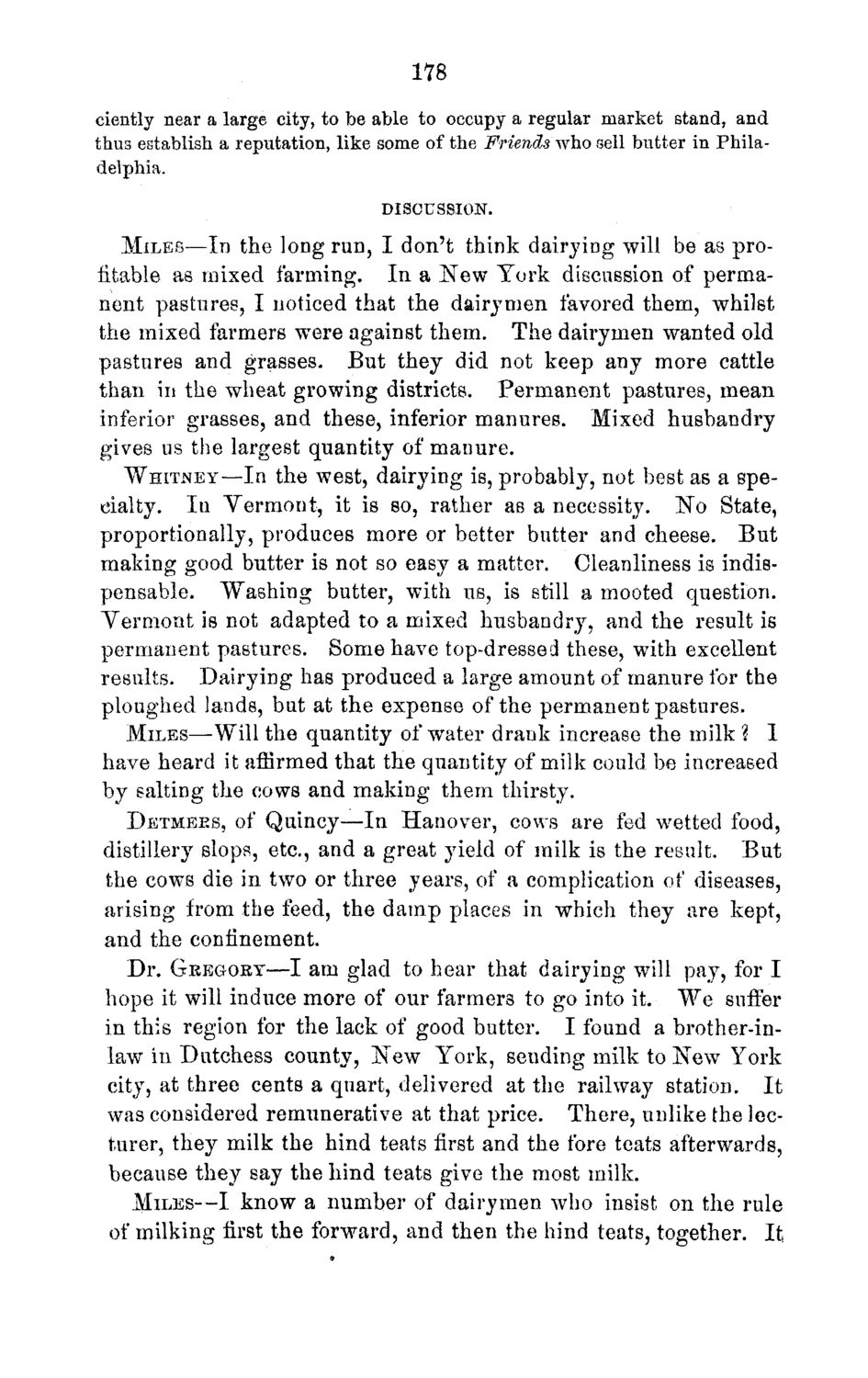| |
| |
Caption: Board of Trustees Minutes - 1870
This is a reduced-resolution page image for fast online browsing.

EXTRACTED TEXT FROM PAGE:
178 ciently near a large city, to be able to occupy a regular market stand, and thu3 establish a reputation, like some of the Friends'who sell butter in Philadelphia. DISCUSSION. MILES—In the long run, I don't think dairying will be as profitable as mixed farming. In a New York discussion of permanent pastures, I noticed that the dairymen favored them, whilst the mixed farmers were against them. The dairymen wanted old pastures and grasses. But they did not keep any more cattle than in the wheat growing districts. Permanent pastures, mean inferior grasses, and these, inferior manures. Mixed husbandry gives us the largest quantity of manure. WHITNEY—In the west, dairying is, probably, not best as a specialty. In Vermont, it is so, rather as a necessity. No State, proportionally, produces more or better butter and cheese. But making good butter is not so easy a matter. Cleanliness is indispensable. Washing butter, with us, is still a mooted question. Yermont is not adapted to a mixed husbandry, and the result is permanent pastures. Some have top-dressed these, with excellent results. Dairying has produced a large amount of manure for the ploughed lands, but at the expense of the permanent pastures. MILES—Will the quantity of water drank increase the milk ? I have heard it affirmed that the quantity of milk could be increased by salting the cows and making them thirsty. DETMEES, of Quincy—In Hanover, cows are fed wetted food, distillery slops, etc., and a great yield of milk is the result. But the cows die in two or three years, of a complication of diseases, arising from the feed, the damp places in which they are kept, and the confinement. Dr. GREGORY—I am glad to hear that dairying will pay, for I hope it will induce more of our farmers to go into it. We suffer in this region for the lack of good butter. I found a brother-inlaw in Dutchess county, New York, seuding milk to New York city, at three cents a quart, delivered at the railway station. It was considered remunerative at that price. There, unlike the lecturer, they milk the hind teats first and the fore teats afterwards, because they say the hind teats give the most milk. MILES—I know a number of dairymen who insist on the rule of milking first the forward, and then the hind teats, together. It
| |